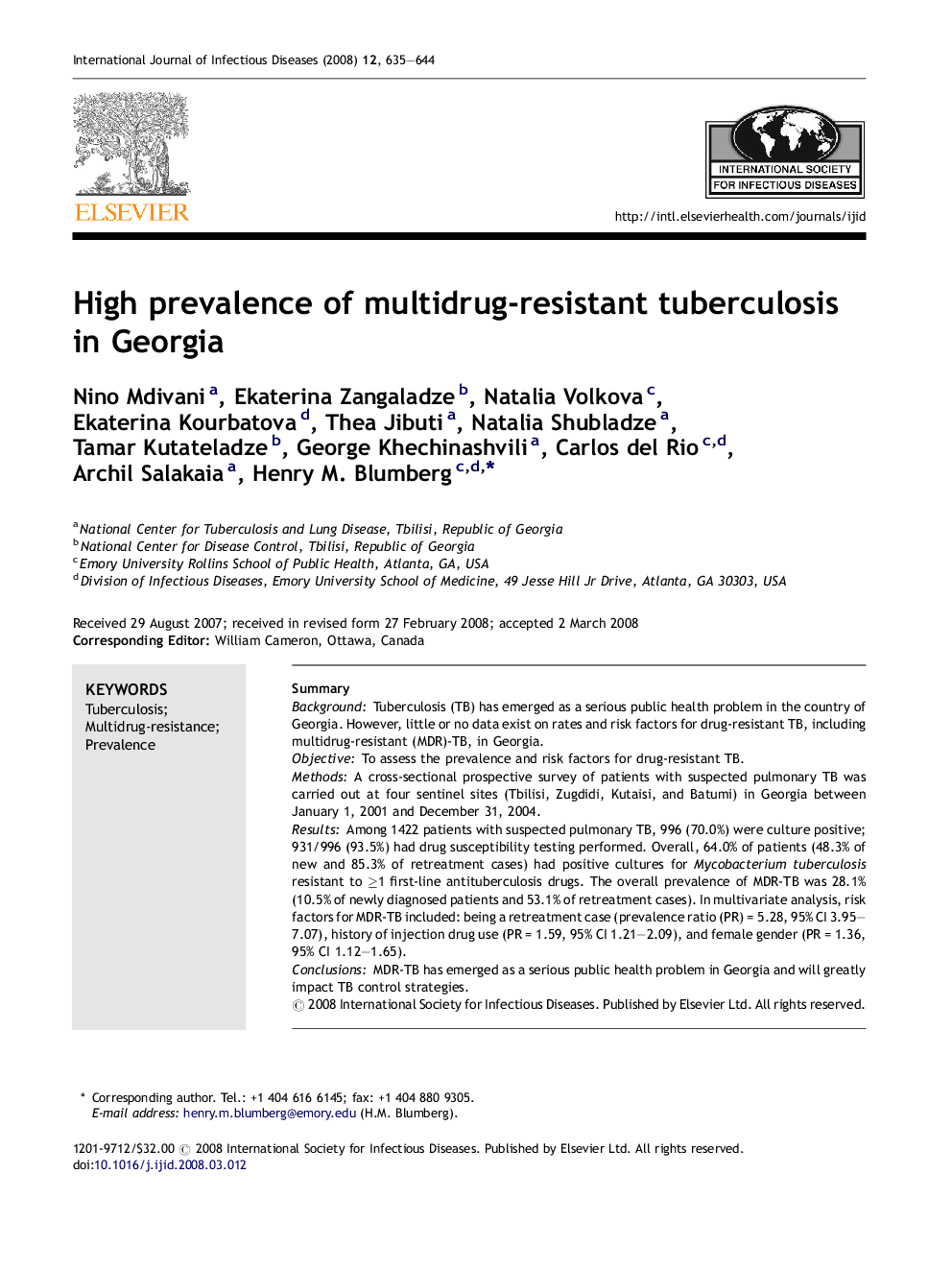| Article ID | Journal | Published Year | Pages | File Type |
|---|---|---|---|---|
| 3364825 | International Journal of Infectious Diseases | 2008 | 10 Pages |
SummaryBackgroundTuberculosis (TB) has emerged as a serious public health problem in the country of Georgia. However, little or no data exist on rates and risk factors for drug-resistant TB, including multidrug-resistant (MDR)-TB, in Georgia.ObjectiveTo assess the prevalence and risk factors for drug-resistant TB.MethodsA cross-sectional prospective survey of patients with suspected pulmonary TB was carried out at four sentinel sites (Tbilisi, Zugdidi, Kutaisi, and Batumi) in Georgia between January 1, 2001 and December 31, 2004.ResultsAmong 1422 patients with suspected pulmonary TB, 996 (70.0%) were culture positive; 931/996 (93.5%) had drug susceptibility testing performed. Overall, 64.0% of patients (48.3% of new and 85.3% of retreatment cases) had positive cultures for Mycobacterium tuberculosis resistant to ≥1 first-line antituberculosis drugs. The overall prevalence of MDR-TB was 28.1% (10.5% of newly diagnosed patients and 53.1% of retreatment cases). In multivariate analysis, risk factors for MDR-TB included: being a retreatment case (prevalence ratio (PR) = 5.28, 95% CI 3.95–7.07), history of injection drug use (PR = 1.59, 95% CI 1.21–2.09), and female gender (PR = 1.36, 95% CI 1.12–1.65).ConclusionsMDR-TB has emerged as a serious public health problem in Georgia and will greatly impact TB control strategies.
